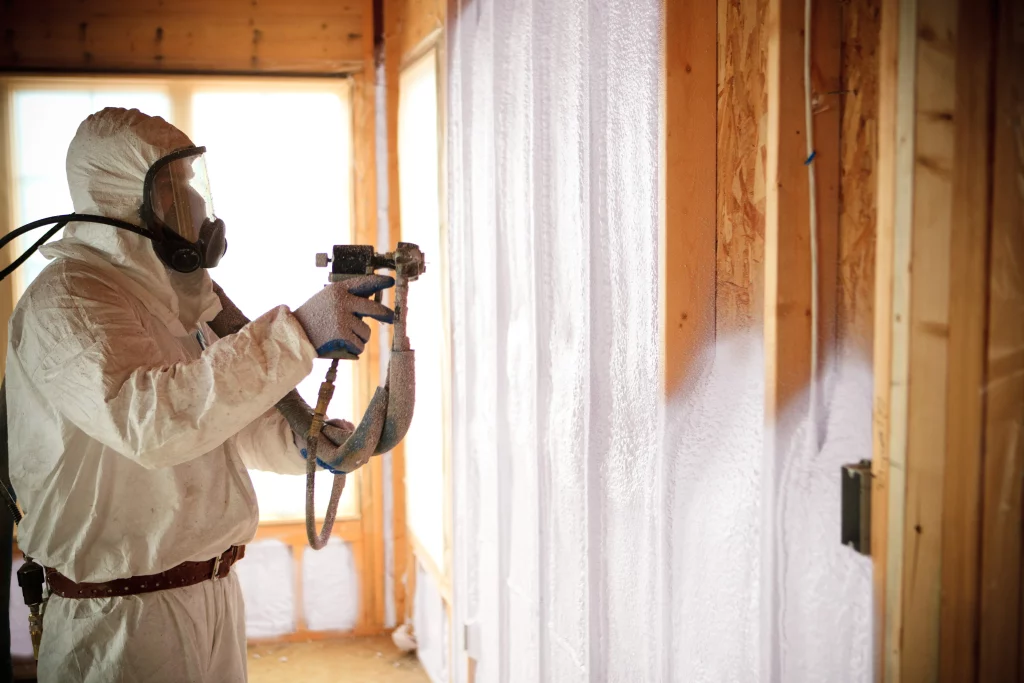Raleigh Excel Spray Foam Insulation has announced the expansion of its spray foam insulation services in Raleigh, NC. The company now provides residential and commercial insulation solutions to a broader geographic footprint across the state. The expansion follows increased demand for energy-efficient building solutions in the region.
Spray foam insulation is a building material that expands upon application to create an air seal in walls, attics, crawl spaces, and other structural cavities. The material comes in two primary types: open-cell and closed-cell foam. Open-cell foam is lighter and less dense, typically used for interior applications and soundproofing. Closed-cell foam is denser and provides a higher R-value per inch, making it suitable for exterior applications and areas requiring moisture barriers.

According to the U.S. Department of Energy, air leakage accounts for approximately 25 to 40 percent of energy used for heating and cooling in residential buildings. Spray foam insulation addresses this issue by forming a continuous barrier that reduces air infiltration. The material adheres to irregular surfaces and expands to fill gaps, creating a seal that traditional insulation materials such as fiberglass batts or blown-in cellulose may not achieve in certain applications.
The insulation industry has seen growth in recent years as building codes become more stringent and energy efficiency becomes a priority for property owners. The International Energy Conservation Code (IECC), which many states adopt or modify for local use, has progressively increased minimum insulation requirements for new construction and renovations. North Carolina adopted the 2018 IECC with amendments, establishing baseline standards for thermal performance in buildings.
Daniel Harper, owner of Raleigh Excel Spray Foam Insulation in Raleigh, explained the reasoning behind the expansion. "We recognized that property owners in surrounding areas were seeking reliable insulation contractors who could provide spray foam applications with proper certification and equipment," Harper said. "Expanding our service area allows us to meet that demand while maintaining the same installation standards we use in our primary market."
The thermal performance of insulation is measured by R-value, which indicates resistance to heat flow. Higher R-values mean better insulation. Closed-cell spray foam typically offers R-6 to R-7 per inch, while open-cell foam provides R-3.5 to R-4 per inch. Fiberglass batt insulation generally ranges from R-3 to R-4 per inch, and cellulose insulation offers about R-3.2 to R-3.8 per inch.
Spray foam also acts as an air barrier when applied at sufficient thickness, reducing heating and cooling costs by an average of 15 percent, according to the EPA. Older homes with significant air leakage can see even higher savings. Closed-cell foam additionally functions as a vapor barrier, helping prevent moisture intrusion in crawl spaces, basements, and exterior walls in humid climates. However, improper installation can cause moisture issues, so each structure is typically assessed individually.
Spray foam formulations have evolved due to blowing agent regulations. Many older products used HFCs, which have high global warming potential. The AIM Act mandates an 85% reduction in HFC production over 15 years, prompting development of lower-GWP agents like HFOs. Energy efficiency programs, rebates, and tax credits also encourage adoption, though eligibility and amounts vary.
Spray foam insulation is used commercially in warehouses, industrial and agricultural buildings, and refrigerated storage, providing thermal control, moisture management, and condensation prevention. Unlike other materials, spray foam maintains thickness and R-value over decades but may degrade with prolonged sunlight or chemical exposure, requiring protective coverings.
Building performance tests, such as blower door tests, measure air leakage and verify insulation effectiveness. The insulation market is influenced by construction activity, material costs, and regulatory changes, making ongoing professional education important for installers. Property owners considering spray foam typically evaluate cost, R-value, building design, climate, and existing insulation. Consulting qualified contractors and local building officials ensures proper product selection, application, and code compliance.
###
For more information about Raleigh Excel Spray Foam Insulation, contact the company here:
Raleigh Excel Spray Foam Insulation
Daniel Harper
(919)-301-9435
info@raleighexcelsprayfoam.com
1628 Dixie Trail, Raleigh, NC 27607
